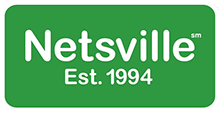You’ve stepped into the ring of Ecommerce, and you hear both cheers and booing for one of the big players, PayPal. You know the name, but is it in your business’ corner? With so much information on the web coming from consumers, bloggers, forums, and competing business, it’s hard to wade through it all in determining what fits your business. There are both good and bad to everything in this world. Let’s try and determine where PayPal falls.
The Good
-
Easy Set Up
Everybody has a PayPal. Ok not everybody, but if you are online reading this, chances are you already have a one. They are easy to set up, there is no waiting to be “approved”, and it’s F-R-E-E, free. To a business owner, this means you can start selling your products or services immediately.
-
No Contract
The term “no contract” should be used loosely in reference to your PayPal account. When you sign up with PayPal, you DO enter into an agreement and Paypal has the right to handle your account the way they see fit. However, when we say “no contract,” you can leave at any time you want with no cost to you. As a business, it’s refreshing to have that bit of freedom. You don’t find it often. And if unfortunately you do have to shut your doors, you won’t be adding insult to injury by getting dinged with a cancelation fee.
-
International
Both PayPal and merchant accounts alike will process credit card transactions from just about anywhere in the world. But, if you go on PayPal’s website, they boast availability in 203 markets and 26 currencies. Depending on your business, this may or may not be important to you, but remember how I mentioned that just about everyone has a PayPal? Having access to an international demographic that prefers to pay with PayPal rather than credit cards is definitely not a bad thing.
The Bad
-
Higher Transaction Fees
2.9% plus 0.30 USD per transaction. This is where you will find PayPal’s real cost to your business. With a quick search you can find infographics and scales that illustrate the cut in profit over time and sales. The 2.9% really isn’t the issue, and over time PayPal actually lower that rate. The kicker comes with the added 30 cents per transaction, it does add up. The trade-off, in this instance, if you are a new business and unsure of any type of real sales projection – rather than paying a monthly fee to a merchant account provider with hopes your business succeeds, you are simply charged per sale.
-
Freeze Accounts
Here comes the big one! You can do a quick Google search for “PayPal account frozen” and you’ll find a plethora of forums and pages devoted to this issue. There’s even a whole site, titled paypalsucks.com, dedicated to the horror stories that are frozen accounts. Because PayPal is so widely used, and you are easily issued one, PayPal takes the same broad approach to dealing with fraud. The consumer generally has up to 60 days to dispute a charge, and if they do, PayPal can pull that money back out of your account or even freeze the account entirely to do an investigation. There isn’t really much worse for business than a complete halt in sales.
-
Directed Away From Site
Whether you own a brick and mortar store that does a portion of sales online, or you are strictly an online business – you want people on your site, business 101, not anyone else’s site, yours. When using PayPal for online transactions, your customers will be directed away from your site. A large portion of consumers will even abandon a transaction when directed away from the main site because it just doesn’t seem as secure. However, PayPal does offer upgraded accounts that will keep your buyers on your site, but they do come with a price-tag.
So how do you decide if PayPal is right for your business? Well, reflecting back, it all comes down to where your business is in its growth. If you’re just starting out PayPal is a great option to get sales started and see where things go. If you’re already established and are turning tens of thousands of dollars in sales each month, you’ll probably want, and should already be using a different merchant account provider. Either scenario, you should have the option to accept PayPal, the service is free and the name carries weight to a global market that every business should be open to.
Based in Rochester, New York, Netsville is an Internet Property Management company specializing in managing the Digital Marketing, Technical, and Business Solutions for our customers since 1994. For more information, please click here.





